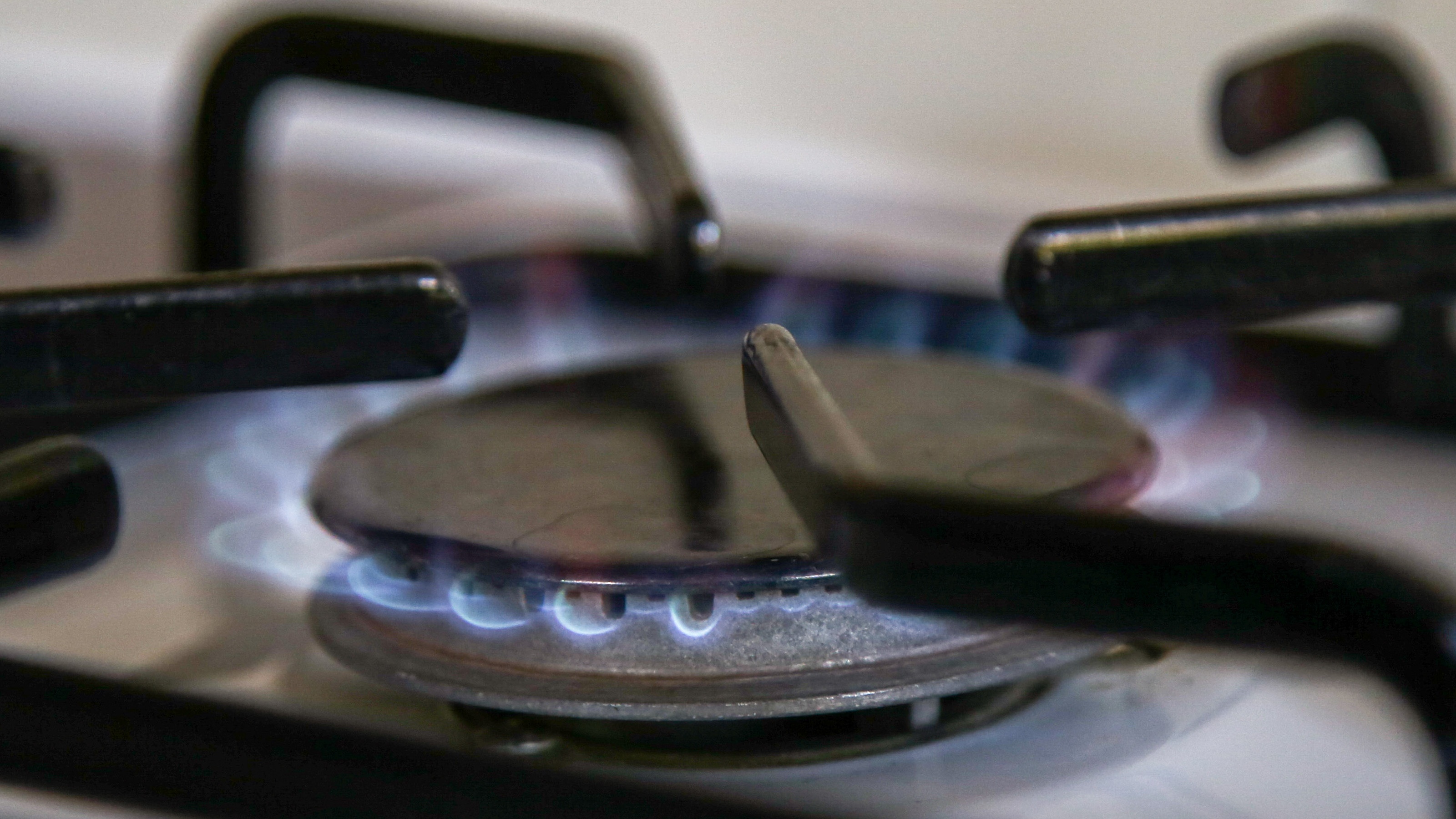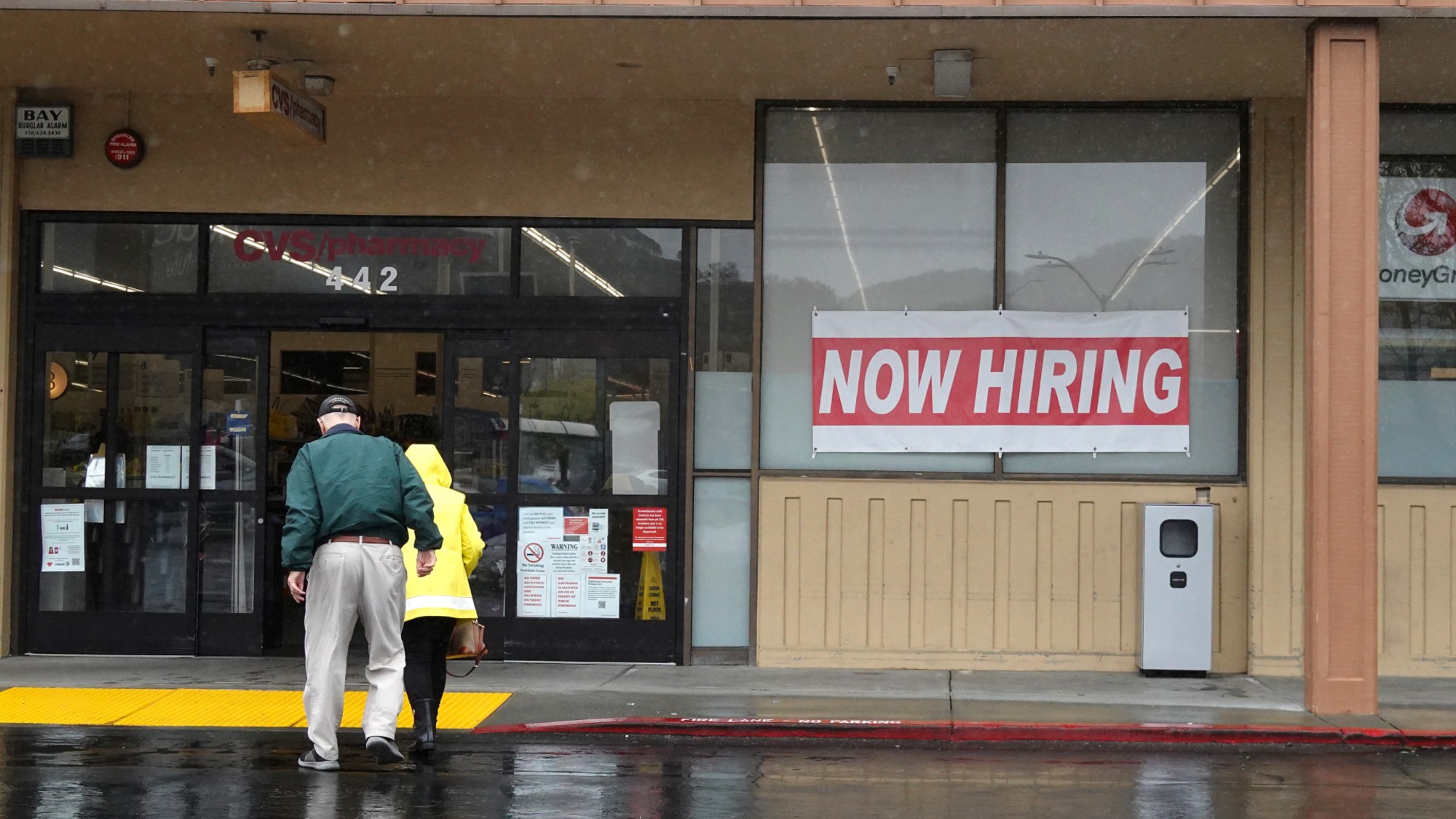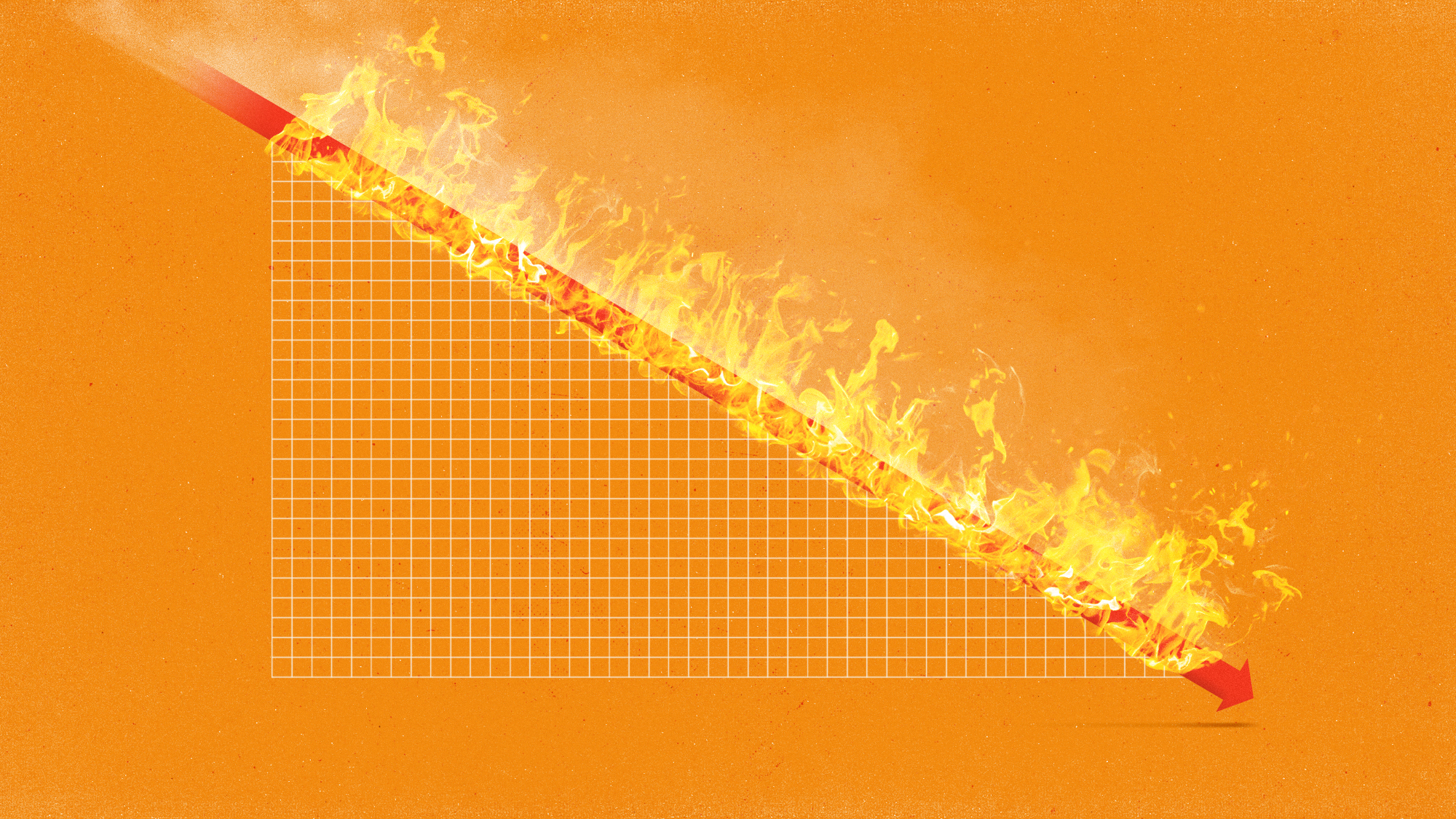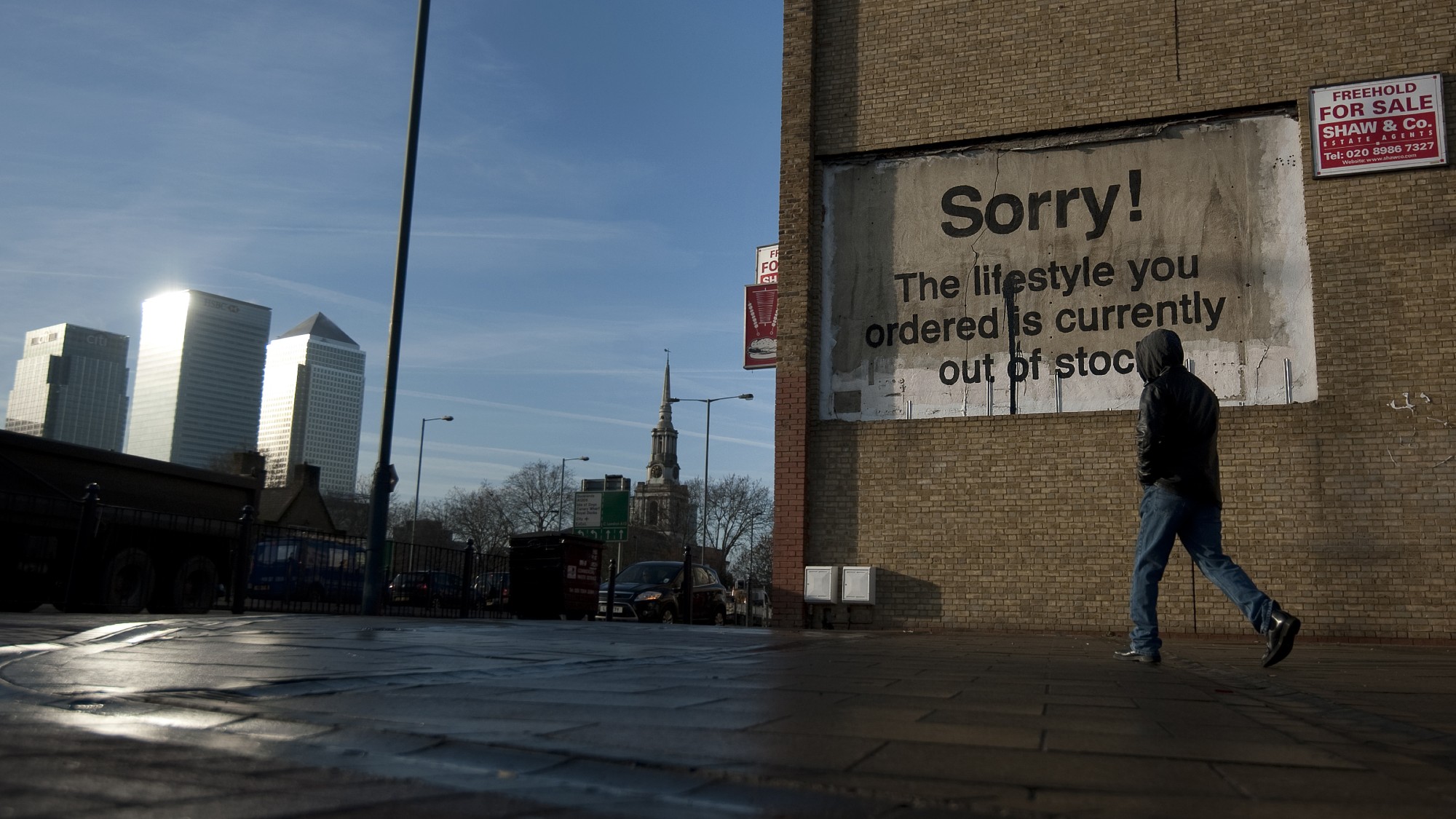‘Bleak Friday’: how the media reported ‘unprecedented’ rise in UK bills
Calls for more action from Rishi Sunak amid ‘worst attack on living standards’ in a generation

A free daily email with the biggest news stories of the day – and the best features from TheWeek.com
You are now subscribed
Your newsletter sign-up was successful
Brits have today woken up to the biggest increase in domestic energy bills in living memory, with newspapers declaring the day “Bleak Friday” and “April Cruel Day”.
In a series of blows to household finances, the energy price cap rises by 54% to £1,971, National Insurance contributions increase by 1.25 percentage points and council tax bills surge by 3.5% on average.
The Guardian described it as “bleak Friday”, quoting the Resolution Foundation think tank as saying that the number of English households in “fuel stress” will double overnight from 2.5 million to 5 million.
The Week
Escape your echo chamber. Get the facts behind the news, plus analysis from multiple perspectives.

Sign up for The Week's Free Newsletters
From our morning news briefing to a weekly Good News Newsletter, get the best of The Week delivered directly to your inbox.
From our morning news briefing to a weekly Good News Newsletter, get the best of The Week delivered directly to your inbox.
A 54-year old reader from Liverpool told the paper: “I live in a poor area, and people just look like the fight’s gone out of them. It was bad enough before, but people just look so much more miserable now.
“I grew up under Thatcher – we thought it was bad then but things are so much worse now. We didn’t have food banks during the 1980s – now they are essential.”
The Daily Mirror ran with the front-page headline “April Cruel Day”, adding that households are facing the “worst attack on living standards” in a generation. Over 400,000 children who were pulled out of poverty thanks to the £20 Universal Credit uplift could be plunged straight back in “unless the Chancellor acts now”, the paper said.
Pressure is mounting on Rishi Sunak to do more to cushion families against the blow. A cabinet minister told The Times that the chancellor’s economic support so far is “not enough”, adding: “It doesn’t even touch the sides for a lot of families. It feels unsustainable.”
A free daily email with the biggest news stories of the day – and the best features from TheWeek.com
Sky News economics editor Ed Conway described the “bill shock” as “unprecedented”, adding that “while the chancellor’s recent measures will slightly soften the blow, they will come nowhere near eliminating the pain for millions”.
The Telegraph focused on the impact of the cost-of-living crisis on middle-class families, reporting that they will lose £4,600 in the next year, “as rising costs and tax increases damage household finances”.
The impact on hospitality was the focus for GB News, which reported that “the cost of buying a pub meal, soft drink or hotel stay could become more expensive from this month as VAT levels across the hospitality sector lift back to 20%”.
The crisis “began to bite” even before the effects of Vladimir Putin’s invasion of Ukraine were felt, said the Financial Times. Official data showed a drop in households’ “real income, shrinking savings and lower growth in spending” at the end of 2021.
And there could be worse to come, according to The Sun. The paper said gas prices could rise further after the “blackmailing” Russian president Vladimir Putin threatened to “turn off gas supplies” in response to the West’s support for Ukraine.
The Spectator’s political editor James Forsyth also warned of trouble on the horizon if the UK does not move to make itself less dependent on Russian energy supplies.
More onshore wind farms are needed to quickly “slash bills”, he said in The Times. But “spineless MPs” won’t move on the issue for fear of “nimby objections”. A “failure to build the energy infrastructure to provide reliable and secure supplies” would “condemn us to being a heritage site rather than a 21st-century economy”, he warned.
-
 Political cartoons for February 16
Political cartoons for February 16Cartoons Monday’s political cartoons include President's Day, a valentine from the Epstein files, and more
-
 Regent Hong Kong: a tranquil haven with a prime waterfront spot
Regent Hong Kong: a tranquil haven with a prime waterfront spotThe Week Recommends The trendy hotel recently underwent an extensive two-year revamp
-
 The problem with diagnosing profound autism
The problem with diagnosing profound autismThe Explainer Experts are reconsidering the idea of autism as a spectrum, which could impact diagnoses and policy making for the condition
-
 What is the job market's future after Trump's tariffs?
What is the job market's future after Trump's tariffs?Talking Points Economic analysts are split on what the tariffs could mean for employees
-
 How could stock market slides affect you?
How could stock market slides affect you?Today's Big Question Pensions, prices and jobs at risk as Donald Trump's 'Liberation Day' measures take hold
-
 Why Spain's economy is booming
Why Spain's economy is boomingThe Explainer Immigration, tourism and cheap energy driving best growth figures in Europe
-
 Volkswagen on the ropes: a crisis of its own making
Volkswagen on the ropes: a crisis of its own makingTalking Point The EV revolution has 'left VW in the proverbial dust'
-
 The row over UK maternity pay
The row over UK maternity payTalking Points Tory leadership hopeful Kemi Badenoch implied that taxpayer-funded benefit was 'excessive' and called for 'greater responsibility'
-
 Post Office: still-troubled horizons
Post Office: still-troubled horizonsTalking Point Sub-postmasters continue to report issues with Horizon IT system behind 'one of the worst miscarriages of justice in British legal history'
-
 The UK's national debt: a terrifying warning
The UK's national debt: a terrifying warningTalking Points OBR's 'grim' report on Britain's fiscal outlook warns of skyrocketing spending, but 'projection' is not a 'forecast'
-
 Copper coins: are they doomed?
Copper coins: are they doomed?Talking Point Treasury says no new 1ps and 2ps needed due to declining use – but would we really miss them?